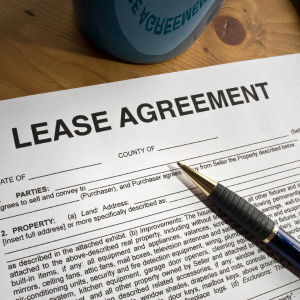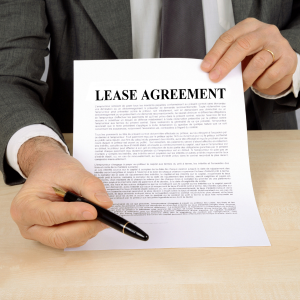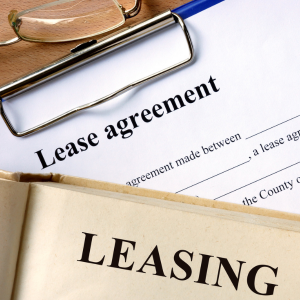
If you’re looking to sell your house in North Carolina, a Lease Option to Sell could be a smart move. Zack Buys Houses can guide you through leasing your home to a tenant who has the option to buy later, helping you earn rental income now while securing a potential sale in the future.
Understanding Lease Options for Selling Your Home in North Carolina
Homeowners in North Carolina who want to sell their property quickly need to know about their lease choices. A lease option, which is also sometimes called a rent-to-own deal, lets a homeowner rent out their home to a tenant with the option for the tenant to buy the home later.
This method can be especially helpful in the real estate market in North Carolina because it gives sellers more options and freedom. By offering a lease choice, sellers can get more interested buyers, even if they can’t get traditional financing right away, but plan to buy in the future.
This approach also lets homeowners make rental income while keeping the option of selling their home at a mutually agreed-upon price. If property values rise over time, this could help homeowners make the most money possible. It is important to know the North Carolina laws and rules that guide lease options because these contracts must follow state-specific legal requirements to protect both parties.
If a homeowner is thinking about this option, they should talk to real estate professionals who know the North Carolina housing market and the law so they can help them through any tricky parts of setting up a successful lease option deal.
Differences Between Lease Options and Traditional Sales
Lease options and regular sales present divergent methodologies for home selling in North Carolina, each with its own advantages and considerations. A lease option allows a prospective buyer to lease a property for a designated duration, with the right to purchase at the conclusion of the lease term.
This arrangement can appeal to purchasers who may not now qualify for a standard mortgage but aspire to eventually own the home. Lease options provide sellers consistent rental revenue while perhaps guaranteeing a future transaction.
Conversely, a conventional house sale entails a direct transaction in which ownership is transferred from seller to buyer at closing, typically necessitating prompt finance clearance from the buyer. Conventional transactions generally yield quicker access to complete payment for the seller, although they may restrict prospects for individuals lacking instant purchasing capacity.
By comprehending these distinctions, homeowners can judiciously determine which option most effectively corresponds with their financial objectives and timeframe while selling their property in North Carolina.
Benefits of Lease Option Agreements for Home Sellers
Lease option agreements are a smart way for house sellers in North Carolina to sell their property because they have so many benefits. These contracts let homeowners offer flexible buying conditions, which can help them attract more potential buyers.
Sellers can reach a wider audience by allowing tenants to rent with the opportunity to buy. This includes people who may not be able to secure typical financing right away. This plan can help homes sell faster and get more people to live in them.
Lease option agreements also tend to lead to higher sales prices because purchasers are usually ready to pay more to lock in today’s pricing and buy later. Sellers also benefit from getting rent throughout the lease time, which can help pay for the mortgage and upkeep of the property.
This deal lowers the risk of empty homes and gives the Rangenberg cash while the home is being sold. Lease options also tend to attract serious buyers who want to take good care of the property because they plan to buy it later. This keeps the property’s value high during the leasing time.
Lease option agreements provide a flexible way to sell your home for cash in North Carolina by generating rental income and allowing sellers to secure higher sale prices.
Key Considerations When Using a Lease Option to Sell Property

When using a lease option to sell your North Carolina home, it is critical to grasp the important factors involved. Before considering a lease option for selling your house, it’s important to assess the local real estate market conditions.
Pricing the property right is critical, as both the rental and purchase pricing must be appealing and reasonable to potential buyers. The lease option agreement should explicitly define terms such as lease duration, option fee, monthly rent credits, and maintenance responsibilities.
Understanding North Carolina’s specific legal requirements for lease options will help to avoid future problems and maintain compliance with state regulations. Tenants should be extensively screened in order to identify qualified applicants capable of acquiring your home at the end of the lease period.
Finally, efficient marketing methods designed to attract serious buyers interested in lease possibilities can improve your chances of sealing the purchase.
When selling your home with a lease option, it’s essential to have clear terms and protect your interests. We verify buyers’ finances to ensure a smooth process and handle all the details for you. At Zack Buys Houses, we buy houses in Charlotte and other cities, making selling fast and hassle-free.
Legal Aspects of Lease Options in North Carolina Real Estate
When contemplating lease options as a selling strategy for your North Carolina house, it is critical to grasp the legal elements of such agreements. In North Carolina, leasing options include both a lease agreement and a purchase option, necessitating careful consideration of contract law.
The lease agreement establishes the terms of the tenant’s occupancy, while the option allows them to acquire the property at a later point, but is not mandatory. To ensure compliance with North Carolina’s legislation and regulations, both agreements must be precisely prepared.
This includes providing specifics such as option consideration, rent credits toward purchase price, option period length, and any conditions for exercising the option. Sellers must comply with state disclosure laws and present potential buyers with all relevant information about the property’s condition and legal encumbrances.
It’s best to consult with a real estate attorney who is familiar with North Carolina regulations to avoid potential traps and protect your interests throughout complex transactions.
Financial Implications of Choosing a Lease Option Sale
There are both good and bad financial effects of choosing a lease option sale for your North Carolina house. One of the main benefits is that you might get constant income from monthly lease payments. This can give you a steady stream of cash while you wait for the property to sell.
A lease option also tends to attract more eligible renters who want to buy the house in the future, which lowers the chance of having to deal with maintenance and vacancy issues. But homeowners should think about the possible downsides, like the fact that the tenant might not use their purchase option at the conclusion of the lease.
This could cost you more than you thought when it comes to promoting and locating a new buyer or renter. Also, you are still responsible for big repairs and property taxes during the lease period. If you don’t keep an eye on these things, they could eat into your profit margin.
In North Carolina’s fast-changing housing market, it’s important to write the lease agreement in a way that protects your interests and makes sure that all the money matters fit with your long-term real estate ambitions.
Can a Landlord Sell a House During a Lease in NC?

In North Carolina, landlords are legally permitted to transfer a property while an active lease is in effect. However, it is crucial to bear in mind certain factors. Throughout the sale procedure, the tenant’s rights must be respected, as the existing lease agreement remains binding.
This encompasses continuing to adhere to the lease terms until its expiration date, which may influence the way in which prospective purchasers perceive the property. Potentially, landlords must coordinate showings or inspections and communicate transparently with tenants regarding their intentions to sell.
Understanding the local real estate laws is essential for both landlords and tenants to effectively navigate this process. If you are selling a North Carolina home during an active lease period, mastering lease options can guarantee a seamless transition and provide flexibility.
In order to achieve a successful transaction for all parties involved, it is crucial to maintain open communication channels and respect tenant rights.
What Are the Disadvantages of Lease Options?
When thinking about mastering lease options to sell your North Carolina house quickly, it’s important to know what could go wrong with this real estate plan. One of the biggest problems is that the tenant-buyer might not pay their rent.
If they don’t use their option to buy the property by the agreed-upon date, you can have financial problems and legal issues. Lease alternatives can also bring in buyers who can’t get standard financing because they don’t have enough money. This makes it more likely that payments will be late or that the property will be damaged.
Another downside is that market conditions may change for the worse during the lease period. If property values go up a lot, you have to sell at the price you committed to, which means you might miss out on bigger profits. In addition, managing a lease option in North Carolina involves a thorough understanding and supervision to make sure that state laws and contract responsibilities are followed.
This could mean more work for the administration and more legal fees. Homeowners in North Carolina who want to use lease options as a smart way to sell their homes need to know about these drawbacks.
Lease options can be risky, as buyers may lose fees, sellers face delays and upkeep, and legal issues may also occur. Contact Us at Zack Buys Houses for more info.
Can You Sell a Home with a Lease in NC?

Yes, you can sell a home with a lease in place, and this strategy can be particularly effective in North Carolina’s real estate market. A lease option, also known as a rent-to-own agreement, allows potential buyers to lease the property for a specified period before purchasing it.
This approach maximizes your home sale by attracting more potential buyers who may need time to secure financing or improve their credit scores. In North Carolina, lease options are becoming increasingly popular due to the flexibility they offer both sellers and buyers.
By implementing a lease option strategy, homeowners can maintain cash flow through rental income while setting a future sale price that aligns with market trends. Additionally, this method reduces vacancy rates and ensures the property is well-maintained during the lease period since tenants have a vested interest in eventually owning the home.
Understanding North Carolina’s specific legal requirements for lease options is crucial to ensure compliance and protect all parties involved in the transaction.
Looking to sell your home? Whether you want to sell fast, skip expensive repairs, or avoid the usual hassle, Zack Buys Houses has you covered. We provide fair cash offers, manage every detail, and ensure a smooth, stress-free experience. Have questions, or are you ready to get started? Call us at (704) 769-0141 for a no-obligation offer today!
| RENT TO OWN | LISTING BROKER | BROKER | REAL ESTATE BROKERS | RENTAL PROPERTIES | OPTION CONTRACT |
| REAL PROPERTY | INSTALLMENT LAND CONTRACT | CONTRACT FOR DEED | DOWNPAYMENT | DEEDS | |
| REGISTER OF DEEDS | EQUITY | BROKERS | BREACH |
Helpful North Carolina Blog Articles

